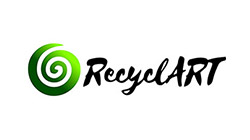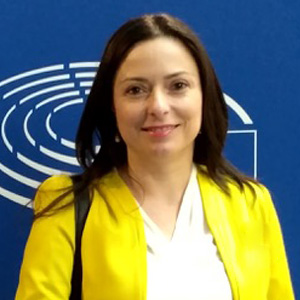RecyklART: projectual creative recycling to payback the environment
Why such a project?
In Europe, 16 tonnes of material have been used by an average person every year. Six of the whole amount becomes waste and only a limited part (36%) is recycled. On the other side, in a socio-economic period as delicate as the one we are experienced (pandemic coivd19), self-esteem and the ability to reinvent yourself and find alternative solutions to problems is crucial, both for the personal sphere and for the working sphere.
In this context, RecyclART project, and the 5 countries partnership, aimed to develop a transnational programme for firstly developing and secondly exploiting ADULTS creativity for:
- payback the environment and find new and alternative ways to transform waste in art pieces
- upskilling long term unemployed adults by stimulating their self-esteem and problem solving
abilities through art.
For these reasons, the project focused on the following priorities:
- Skills development and inclusion through creativity and arts
- Environmental and climate goals
- Supporting the setting up of and access to upskilling pathway
This project dealed with two dimensions of creative recycling:
- occasional creative recycling: occasional activity of recycling and reusing with no project behind
- projectual creative recycling: systematic activity of recycling and reusing implementing a precise procedure NEED → PROJECT → WASTE → NEW OBJECT.
While the first dimension was working only with artistic creativity, the second one dealed with project and design and so problem solving abilities.
Aim
The project’s general objective was to improve employability of adults by enhancing their abilities in the field of recycling with creative design. The specific objectives were:
- Developing cooperation and innovation among artists working with vulnerable people and adult educators to raise ecological awareness and creative activity of adults;
- Raising and broadening competences of artists working with vulnerable people and adult educators;
Promotion of art therapy methods of work among professionals working with people from communities at risk of marginalization as well as increasing their competences and local and international networks.
Target groups
- Long-term unemployed ADULTS interested in creative activities and in connecting recycling with design;
- Adult educators using creative methodologies and artists working or having worked with recycling and realisation of new objects using waste and interested in mentoring adult learners.
Results
Within the project led by a consortium 5 partners from Greece, Italy, Poland, Albania, Romania, 3 intellectual outputs were prepared:
- Best practices on “occasional creative recycling” among ADULT PEOPLE – an analysis on the state of the art about occasional creative recycling. The occasional creative recycling is the activity of creating a new object (a decorative one or not immediately necessary for a specific scope) starting from a set of waste materials you have (process: WASTE →IDEA → NEW OBJECT).
- Learning materials and practical handbook to boost “occasional creative recycling” and to make systematic “projectual creative recycling” . This output was a collection of material (and a handbook) and of a series of activities that make recycling systematic and projectual rather than merely occasional and propose the creative activity of recycling as a support to the development of self-esteem of adults who, due to prolonged inactivity at work, they find it difficult to find it again.
RecyclART exchange platform. The exchange platform is a free open space addressed to adults (especially long term unemployed ones), artists of recycling, artists in general, adult trainers, people in general interested in projectual creative recycling and upskilling paths and in sharing ideas and objects with the community
Added Value
This project was held to provide a valuable cross-cultural experience for partners from 6 countries and their local, national co-workers. It created a professional network and developed skills in mentorship relation through the art of recycling and with the aim of increasing the self-esteem of long-term unemployed adults.
Activities
- Seminars and conferences in 2023 in all partner countries
- Final International Conference in Albania

Project duration:
March 2021 – February 2023

More information:
Project coordinator

OIKIPA
Greece
Project partners

Asociatia pentru Educatie si Dezvoltare Durabia – AESD
Romania

PROMIMPRESA SRL
Italy

DIEK Agriniou
Greece

Institue for Sustainable Development, Environment and Tourism – InSet
Albania

Fundacja Rozwoju Aktywności Międzynarodowej i Edukacyjnej – FRAME
Poland
Contact the project supervisor

Marta Kędzia
mkedzia(at)euframe.eu

